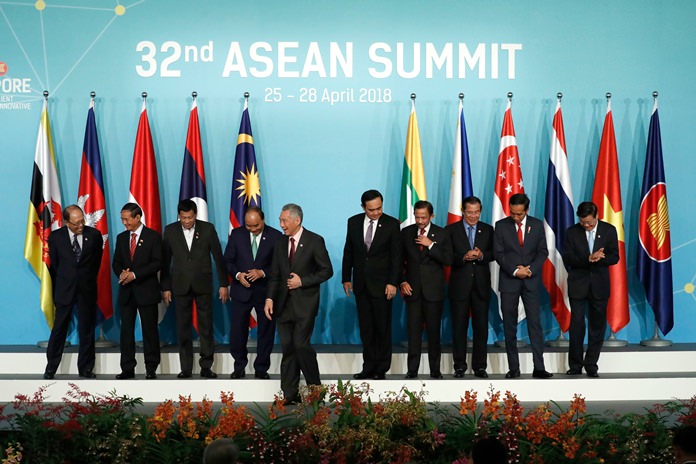
Singapore (AP) – Southeast Asian countries will work more closely with new powers China and India to counter the pressure of protectionism and ensure continued growth, Singapore’s prime minister said Saturday.
Addressing the summit of the 10-nation Association of Southeast Asian Nations, Prime Minister Lee Hsien Loong said that regional economic growth was under threat because the political mood in many countries had turned against free trade. He said recent trade tensions between the U.S. and China in particular are worrying.
The U.S. and China are entangled in their most consequential trade dispute since World War II. Both countries have proposed tariffs of $50 billion on each other’s products. President Donald Trump is looking to impose tariffs of up to $100 billion more on Chinese goods.
“The global strategic balance is shifting, and so is the regional balance,” Lee said. “New powers, including China and India, are growing in strength and influence. This has opened up new opportunities for ASEAN member states as we expand our cooperation with them.”
He said that the group faces challenges closer to home as well, such as the Islamic State group, cybersecurity and strengthening a regional economic community.
In a statement on Saturday, ASEAN leaders affirmed the need for peace in the South China Sea, where the bloc is currently negotiating a set of rules with China to avoid conflicts arising from a bitter territorial dispute pitting some members against Beijing’s vast claims to the strategic waterway.
They also encouraged Myanmar and Bangladesh to press on with their “shared commitment to carry out the voluntary return” of about 700,000 Rohingya Muslims who have fled Myanmar’s Rakhine state, Lee said.
Myanmar’s military has been accused of instigating the persecution of the ethnic minority, which has been denied citizenship in the predominantly Buddhist country.
Lee said the leaders agreed that the refugees’ return must be carried out “in a safe, secure and dignified way, without undue delay.”
The leaders also welcomed a historic summit between North Korean leader Kim Jong Un and South Korean President Moon Jae-in as a first step toward reducing tensions on the Korean Peninsula.
“It’s a positive step – it’s better than firing missiles and testing bombs – but how does it go? That’s something which we will wait and see and which we can only hope for the best,” Lee said.
To fight protectionism, Lee said ASEAN would like to conclude negotiations this year on the Regional Comprehensive Economic Partnership, a proposed free trade agreement between ASEAN members and Australia, China, India, Japan, South Korea and New Zealand.
In addition to Singapore, the ASEAN members are Myanmar, Cambodia, Laos, Indonesia, Thailand, Malaysia, Vietnam, Brunei and the Philippines.
 |
 |





